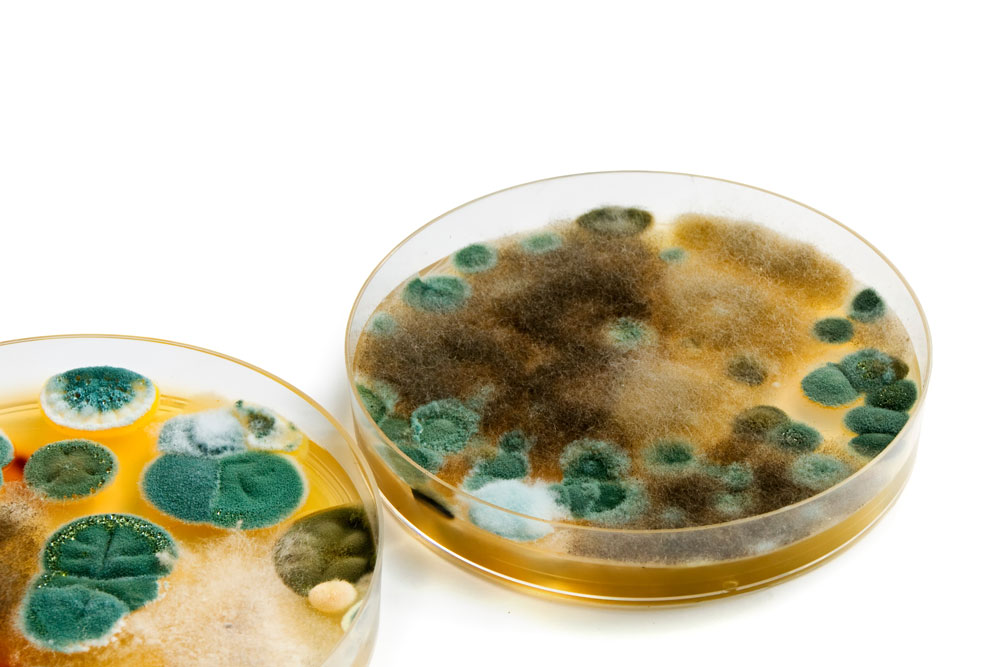Is White Mould Dangerous To Be Exposed To?
 CONTENTS
CONTENTS
- What is white mould?
- The dangers of white mould
- How to remove white mould from your home
- How to prevent white mould
- Get in touch
White mould can often go unnoticed for a long time as on certain surfaces it can be hard to spot. Thorough, prompt remediation is essential to protect people against health problems, as well as your property from damage.
Here at ICE Cleaning, we offer our mould removal services across the UK. We have technicians available around the clock, 365 days a year, including bank holidays. They can eliminate all the mould in your home and advise on how to prevent it returning in the future.
Read on to learn more about white mould and whether it is dangerous.
What is white mould?
White mould is a common household issue. It thrives in damp, humid environments and feeds on organic matter. It is normally triggered by moisture problems like damp and condensation, and poor ventilation.
You will typically find this type of mould in dark, cool places with high humidity levels like basements, bathrooms, kitchens, or behind furniture against an exterior wall.
Mould feeds off organic material so wood, some kinds of fabric, and certain building materials can be damaged over time by mould growth. It can even lead to structural damage. You can find out more about what causes mould here.
White mould growth can be mistaken for efflorescence and mildew, but it is essential to tell them apart. To start, white mould has a fluffy or powdery texture while efflorescence (crystalline salt deposits) can be rubbed off easily.
Mildew usually grows on the surface of damp materials and appears flat, too. On the other hand, white mould penetrates deeper into affected surfaces such as walls or furniture. White fluffy mould carries a musty odour which helps in distinguishing it from harmless white substances like dust.
The dangers of white mould
The most common hazard is the adverse effect on respiratory health. Exposure to white mould spores could potentially provoke allergic reactions such as sneezing, coughing, skin irritation, and red eyes.
In some cases, prolonged exposure can trigger asthma attacks or exacerbate existing lung conditions. Certain groups are particularly vulnerable to the effects of mould growth including young children, elderly people, people with pre-existing skin and respiratory conditions, and people with a weakened immune system.
Certain types of white mould produce mycotoxins, too. These toxic compounds have been linked with serious health issues when ingested or inhaled over long periods. As soon as you spot any mould in your home, whether it's black mould on a window sill or white mould on the walls, you must bring in professionals immediately.
How to remove white mould from your home
Mould is stubborn to remove and remediation can be dangerous. Cleaning it yourself might seem tempting, but remember that improper handling, such as scrubbing the mould, can trigger it to release spores which can then spread throughout the house.
You will also be much more likely to inhale or touch the mould as you clean the affected area. Without personal protective equipment, you could be putting your health at risk.
Your chosen removal technique or product might not be that effective, either. Any mould left behind will simply regrow and your mould problem will return.
Professional mould cleaners have the specialist knowledge and tools to remove all the mould in your home, including airborne mould, safely. They can even identify the specific cause of the mould in your property to help you keep your home mould-free in the future.
How to prevent white mould
Preventing white mould starts with controlling moisture in your home. Keep humidity levels below 60% all day, and use a dehumidifier and air conditioner to help you reach this target.
You should also fix and clean up after leaks promptly to stop damp conditions forming. Avoid drying clothes indoors, as well, as this can release excess moisture into the air which can get trapped in your home.
Ventilation is crucial, too. Open windows or use extractor fans in high-humidity areas like kitchens and bathrooms. Don't forget to regularly air out seldom-used spaces such as basements and attics.
Maintain cleanliness around your house by vacuuming and dusting often, especially in areas where mould is prone to growing, like on window sills.
Mould can start growing in as little as 24 to 48 hours, so cleaning up and drying out your property immediately after flooding is critical.
Get in touch
Our technicians have been accredited by Dewpoint Professional, and can carry out our comprehensive nine-stage mould removal process quickly and thoroughly. They will not leave the site unless you are happy with their work, and as a part of our lifetime guarantee* will return to site for free in the unlikely event the mould comes back.
You can book our technicians for mould remediation by calling 0208 066 0360 or sending an email to enquiries@icecleaning.co.uk.
*subject to advisories

Speak with me today,
I’m here to help
By asking you a few questions either via phone or email I can immediately provide a realistic estimation of the cost.
You’re in good company. We’ve cleaned for the following commercial clients… View all

Why choose us?
- Cater to a wide variety of cleaning situations
- Nationwide coverage, available 24/7
- Cater to commercial and domestic clients
- Free survey provided prior to quotation
- Emergency response team
- Offer a bespoke service designed to suit all your needs
- All technicians hold professional health and safety qualifications, including BICSc, IOSH, Dewpoint Professional & Safe Contractor
We’re fully accredited
We place best practise, professional expertise and health and safety at the core of our business. We’re fully compliant with all legal obligations. You can view a list of our accreditations below, or visit our Health & Safety page for more information.











-RGB-small.1707319151.jpg)




















